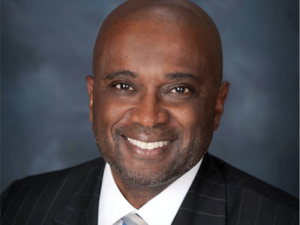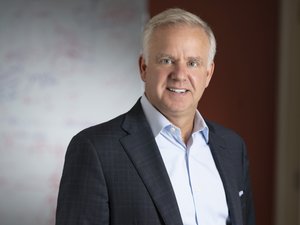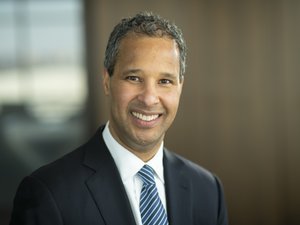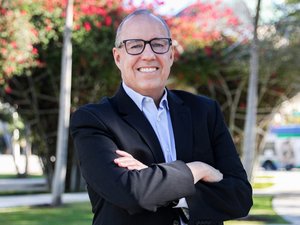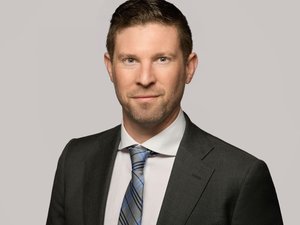Following a shocking election result that few predicted, citizens, voters, business owners and Americans of all stripes are asking: what will a Trump presidency mean for us?
Donald Trump's bombastic rhetoric, in concert with a legislative branch dominated by one party, will no doubt translate into public policy that is a sharp divergence from the past eight years. And a reenergized base of supporters who previously felt their voices were overlooked will become more prominent in public discourse. But a Trump Presidency will also directly impact the geographic region surrounding the nation's capital in ways unfelt anywhere else in the country.
The incoming D.C. population is going to be the antithesis of the Obama years. And this is bad for the region's innovation economy.
In the past decade, Washington, D.C.'s population has exploded and demographics have shifted. An influx of young, well-educated millennials has led to rapid development, neighborhood revitalization, the emergence of a nationally-recognized culinary scene and a proliferation of startup companies outside the city's traditional realm of politics.
To be sure, there were a number of factors to catalyze the most rapid millennial population growth of any city in the United States. But it is no coincidence that the migration of young, educated citizens to the nation's capital came in the years following the election of Barack Obama, who was able to so effectively harness the energy of the millennial generation. Obama and the youthful cadre he brought to town made Washington cool again.
And though many of those who moved to D.C. were, at least initially, enticed by the prospect of public service, the wealth of educated, motivated workers has been a boon to the region's innovation economy.
So now what?
Donald Trump will take office on January 20th. If early indications are accurate, the 70-year-old president-elect will bring with him a Republican old guard, with the likes of Rudy Giuliani, Newt Gingrich and Jeff Sessions as potential cabinet picks. Public and private employment churn is inevitable with the entry of a new administration, particularly when power changes party hands. But with many young Republican staffers having spurned Trump's candidacy from the outset, and his candidacy pushed to victory by a largely rural vote, it's unlikely that much of the new administration's staffer corps will look anything like the current one.
The incoming D.C. population is going to be the antithesis of the Obama years. And this is bad for the region's innovation economy.
While the region's economy and workforce are not solely dictated by which president sits in the White House or which party is in Congress, it is still the major driving force. It's likely that public spending will be slashed under a fully Republican government, and the trickle-down effect to local institutions and businesses that depend on research funding, grants or contracts cannot be underestimated.
Perhaps even more detrimental is the risk of losing a pool of talented young employees and applicants. The generation of Americans that were inspired by Barack Obama's message of hope were drawn to D.C. with an ambitious desire the spread change and make an impact on government or business. Many of these people put in time in government or at non-profits or think tanks, and have since moved into the private sector. I include myself in this group, having migrated from the public sector to the local startup world.
Now there is the dual threat that the spigot of young workers flowing into the capital will shut off and that those who are already here may see this as a time to move on. D.C. is, after all, a transient city and politics find a way to work themselves into most people's lives. Living in the District (a city that voted 93 percent for Hillary Clinton) under a Trump administration may be unpalatable enough that it drives a portion of the new, young population away.
But the District has also rapidly become a young urban professional's Eden, with seemingly endless options of craft coffee shops, diverse and delicious restaurants, boutiques and bars expanding from a revitalized city core. The past decade has also seen a proliferation of industry outside of government, as the region has emerged as a hub for startup activity.
And this is why President Trump could be great for D.C. startups.
Trump, with his "Drain the Swamp" rhetoric, has made no secret his disdain for the Washington political class, and for the most part the feeling is mutual. Along with the usual turnover that comes with a presidential transition, this particularly ugly election and its unexpected result could effectively drive even more disenchanted political staffers out of government.
Young workers could be welcomed by the open arms of the region's growing startup companies.
But rather than leave the city that now, more than ever, is an attractive place to live, this coterie of smart, young workers could be welcomed by the open arms of the region's growing startup companies. Private companies can now pitch their own missions of fulfilling, challenging and fun work to recent graduates instead of losing them to staff assistant jobs on the Hill, or recruit them early through internships. After all, the prospect of a semester working at 2U suddenly becomes a lot more attractive than policy work under Education Secretary Ben Carson.
While it's still unclear how the transition will fully manifest, local startups should grab a net and start fishing for talent that may soon be swimming their way.
